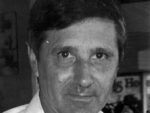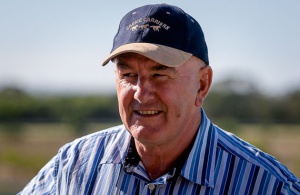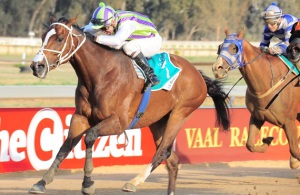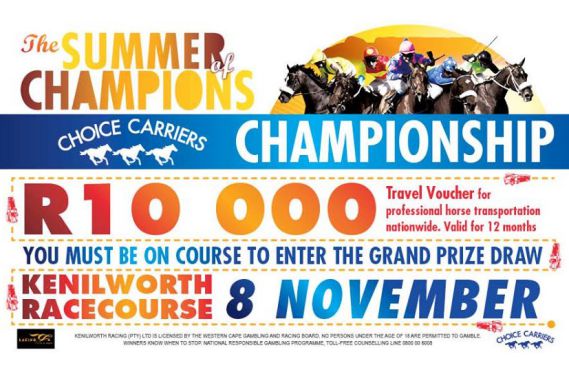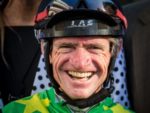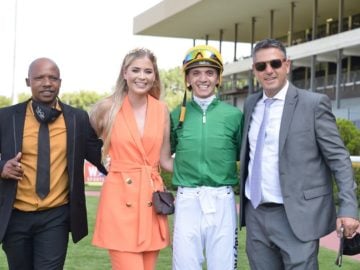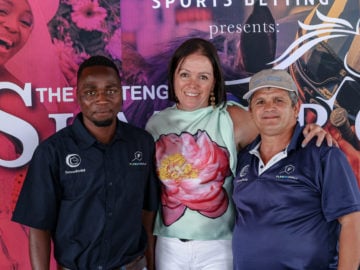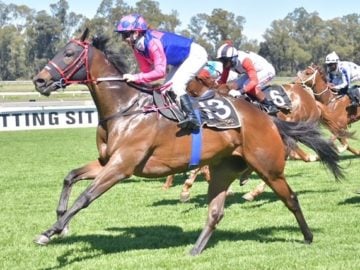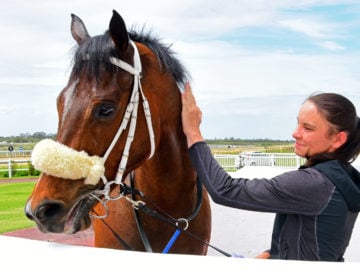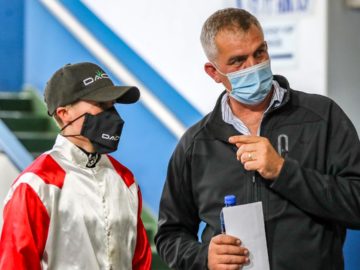There are many unsung heroes in racing, but perhaps one of the most often overlooked are the transport companies. They are the invisible hands that get our horses safely to and from the studs during the breeding season, see to it that yearlings get to the sales and back, rush all manner of emergencies to the vet and of course, make sure that our horses get to the track on time for their race outings. The blue and white livery of Choice Carriers has become a familiar sight to horse owners across the country and as this weekend sees the fourth renewal of the Gr2 Choice Carriers Championship, the Sporting Post spent a little time getting to know the man behind the wheel.
Peter Choice
Peter Gordon Choice was born on 20 November 1955 in the rural town of Murrurundi, in the Hunter Valley area of Australia. He spent about 2 years there before the family relocated to New England in New South Wales. He has 4 older sisters and one younger brother. His father managed a big cattle station, running 3,000 cattle and 6-7,000 sheep and his mother, rather understandably, had her hands full raising the children.
“All the farm work was done with horses and dogs, not motorbikes. My father was quite a good horseman and always had horses and I guess my interest started there. I was probably a bit of a late starter, but joined the Pony Club at about the age of 12. The system there is very meticulous and it covers everything from basic riding to jumping, dressage, eventing and campdrafting, which is similar to the American cutting competitions. My brother and I both went right the way through till we finished school and we were quite competitive. My father was very supportive and we used to go to shows and things, but I was always more interested in the horsemanship side.”
After completing his schooling in Inverell, Peter spent a few years helping his father on the cattle station. He then got married and relocated to the university town of Armidale, where he got a job in the veterinary lab at the Department of Agriculture.
Every town has a race track
“In Australia, every town has a racetrack and Armidale has quite a lot of racehorses. We divide our centres up into country and town tracks, with ‘town’ being a major centre like Sydney or Brisbane, but horses move around within the system quite a lot. Because there is so much scope, they say that every horse in Australia will win a race at least once in its career! Our training licenses are divided up into A, B or C licenses, depending on the centre and the level you train at, so one can take out a private license for a small number of horses. I did a farriers course and like most people, used to do all my own horses. With Armidale being such a busy centre, I started doing a bit of shoeing work for other people part-time. My father had taught me to break in horses, and I also broke in a lot of racehorses for the local trainers. That’s really how I got into the racing side of things. I’d never had much to do with Thoroughbreds until I moved to Armidale, because growing up, we mainly had stock horses. They were more or less evolved from performance horses, but the stock horse is now an officially recognised breed. My father and I were both very involved with setting up the Stock Horse Society and the official stud book. Aside from that, I also did a bit of training and had a string of about 8 horses. I had to fit all that in around my day job, so I’d work the horses before heading off to the lab and then come back to the horses again in the afternoons.”
Rags to Riches
“My father-in-law at the time owned one mare and he decided to breed her to a stallion called Our Best Friend, who was by Secretariat. She produced a colt that he named Les’ Choice. I trained that horse together with my ex-wife and father in law and he won 16 of his 26 starts, including the Doomben Cup in 1986. It was a Gr1 race and worth around AUS$ 200,000 which was a huge amount of money in those days. It was a real rags to riches story.”
After working at the veterinary lab for a few years, I moved to a town called Mossvale, which was also a big horse area, and by then I was breaking in Thoroughbreds on a full-time basis for trainers like Tommy Smith and Brian Mayfield-Smith.
Polocrosse
Peter was a keen polocrosse player since the age of 19 and played at provincial level. National championships were held every 2 years, with each state getting a turn to host the tournament and Peter remembers playing in each of the 7 states over a 14 year period. It was also the start of his transport career. “I had my own truck that could take 8 horses and we’d hitch a caravan behind that and that was our accommodation for the trip. The Darwin trip took us a week as we’d travel, then stop and rest the horses, travel, etc. . The trip to Western Australia took about a week and a half – it’s a 4 hour trip by plane!”
Polocrosse also brought him to South Africa. “I was picked for the National polocrosse team and we were the first team to come and play South Africa and Zimbabwe back in 1993. I was asked back to coach at the beginning of 94. I was going through a divorce, so had to go back to Australia for a bit, but then came back to South Africa full time at the end of 1994.”
“Back in Australia we did all the mucking out, bandaging, washing down etc ourselves – we’d never seen a groom, so it took a bit of adjusting initially, but we do have an incredibly good lifestyle in this country and it’s very much home for me now. I settled in KZN, because that’s where I’d done a lot of my coaching and I knew a few people. I played polocrosse for the Pietermaritzburg club and made a living shoeing and schooling horses. I bought a little truck and my first trip was taking broodmares to Avontuur. That truck used to take 5 horses and it took me 2 days to get to Stellenbosch – the truck was that slow! I was involved with Andrew Kruger from Bronco Transport – he used to work for Courier before going out on his own. Eventually he got out and I was fortunate enough to get a lot of his clients and business. I was still only doing it part-time, but things grew until I got into it full time in 2002. Things kept growing and we bought out Courier Transport in 2012 and we’ve really just gone from strength to strength from there. We’ve now got 2 bases – one in Natal and one in Cape Town and we have 5 long-distance tracks that can each take 16 horses, a couple of 6-berth raiders and a couple of 3 berth boxes, one in each centre.”
Racing
“We bought Courier with the racing contract, which means we take care of all the transport from Milnerton and Philippi to the racetracks. We do all the club gallops as well as all the transport on race days and have 3 dedicated vehicles for the racing loads. Each racing truck takes around 10 horses and we have vehicles running between the stables and the track most of the day. Horses obviously need to be at the track within the prescribed time, but we try and coordinate it so that they’re there for the minimum amount of time before we ship them back again. Another aspect of our racing work is the race day ambulance and there are always 2 on course at any time, so that if a horse has to be vanned off to the veterinary hospital, there is always one spare.”
Service
“The horse game isn’t easy and there are a lot of overheads with the trucks, our operating premises, staff, fuel, tyres, etc, but we pride ourselves on providing good service. And as with any business, anyone that provides a good service, survives. Obviously we don’t only transport racehorses – our business caters for all horses and horse owners and as you can imagine, when you have a 16 berth truck, that sometimes means dealing with 16 different people who all consider their horse a member of the family. That can present a certain number of challenges, so it’s very satisfying when you get feedback that your drivers are good and horses have traveled well. A lot of people keep in contact and let us know how their horses are getting on and it’s something we’re very proud of.”
Family life
“My wife Karen was managing a veterinary wholesaler when we met in 2002 and I got to know her through my horses. We got married in 2004 and Karen also works for the business full time. Karen has a 16 year old daughter, Laren, who we call our own, and our son, Hylton turns 10 in February. Hylton is also playing polocrosse now, but we’ll see how it goes. I’ll never push him, but if he wants it, he’ll have to work for it.”
“Bruce le Roux from Spring Valley Stud is my brother-in-law. I used to do a bit of Thoroughbred breeding and started out with a mare called Spy Mission. She’s bred a couple of winners, but nothing major. In A Rush is probably the best horse I’ve been involved in here. Unfortunately breeding isn’t really viable unless you want to breed and race yourself, so I’ve imported a really good stock horse stallion and I mainly focus on breeding for the sport horse market now.”
Choice Carriers Championship
“The race sponsorship was something that came as part of the contract when we bought over Courier, but I would want to do it anyway to give something back to the racing industry and the people who our livelihood comes from. Courier had been sponsoring this race and we were offered the choice of continuing with this race or choosing another, but I chose this race because it’s always been won by a very good filly. We’ve sponsored three runnings under the Choice Carriers name and in that time it’s been won by Princess Victoria, All Is Secret and In The Fast Lane. I feel it’s a good race and is one of the bigger pointers for the season, so we’re looking forward to Saturday.”
‹ Previous
